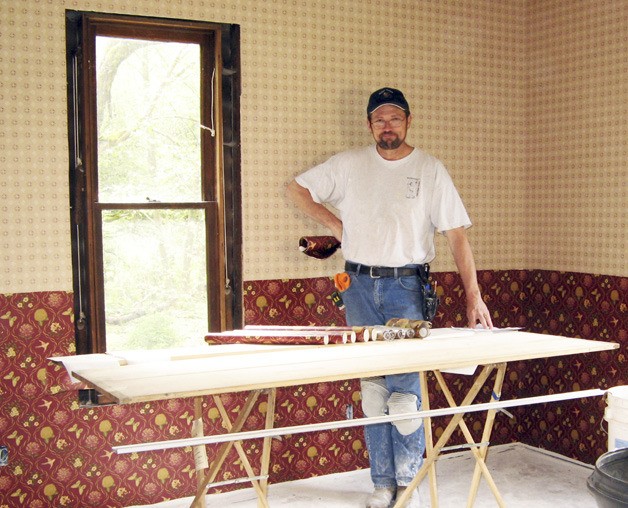To the crowing of roosters at opposite sides of the Mary Olson Farm, contractors last week hustled to put the finishing touches on the best preserved historic subsistence farm in King County.
As one contractor delivered frames for interpretive signs, another tackled difficulties with a pump.
And now that the White River Valley Museum and the City of Auburn have brought things to the just-about-complete point, it’s time to party.
The time, date and place to celebrate is 11 a.m. to 2 p.m. Saturday at the farm site at 28728 Green River Road, just north of the Auburn Golf Course.
“The grand opening is going to be a great day, and we want people to come and see all the farm has to offer,” said Patricia Cosgrove, museum and farm director. “Fill a picnic basket and bring a blanket to have lunch on the grounds and then have fun exploring the farm and feeding our resident chickens and goats.”
There is a lot to explore, from the 1897 barn, to the fully restored 1902 farmhouse, from the century-old orchard and three salmon runs in Olson Creek to the smoke house, outhouse and weaving house.
Opening-day visitors can check things out on their own or join a tour led by a volunteer docent. They can even play old-fashioned games like wheelbarrow races, egg tosses and three-legged races.
Standing in the living room of the restored house, complete with a shiny new antique stove, wall paper, fixtures and furnishings, Cosgrove marveled at how far things had come.
“It’s hard to describe to people what it was like, it’s so different now. They had removed the porches, moved the walls around, there was no way to get upstairs, there was a hole in the ceiling, there were no chimneys, no stove, no electricity, no heat. Because most of the walls were gone, most of the wall coverings were gone. It was a dark, dank cave with a few two-by-fours holding things up,” Cosgrove said.
The City bought Mary Olson Farm through the King County Conservation Futures Fund in 1994. After a period of planning, the museum began the work in 1996. The restoration budget totaled $1.64 million, of which the museum raised $1.61 million with City support, donations and grants. The museum will officially recognize all donors at the grand-opening.
Today this King County Landmark is listed on the National Register of Historic Sites. Not only will it operate as a living history and environmental learning site, but the City will also make it available for community and special events.
Despite the ongoing restoration work, Mary Olson Farm has hosted field trips for first and sixth graders in the Auburn School District since 2007. The first-grade students explore life on the farm and where food comes from, while the sixth-graders learn about stream ecology and salmon life cycles. Tours for students from private schools and other districts were initiated in 2010.
Residents of Auburn and the surrounding communities also got a sneak peek of Mary Olson Farm during the Hops & Crops Harvest Festival last September. The event celebrated hops, a former lucrative cash crop for the farm, and helped raise funds for the final restoration work. Guests were able to sample beers from several local breweries while enjoying live music and a marketplace. Because of its popularity, Hops & Crops will be back Sept. 24.
This summer, drop-in hours are 11 a.m. to 4 p.m. during these weekends: June 25 and 26; July 9 and 10, 23 and 24; Aug. 13 and 14, 27 and 28; and Sept. 10 and 11. Admission for the summer drop-in hours is $5 adults, $3 children/seniors and $15 for a household or family.
The White River Valley Museum is a partnership with the City of Auburn. Museum collections focus on Puget Sound history, Northwest Indian culture, Japanese immigration and the Northern Pacific Railroad.
The museum is open Wednesday through Sunday from noon to 4 p.m. and is located at 918 H St. SE in Auburn. Regular admission is $2 adults, $1 seniors and children. Admission is free on Wednesdays and the fourth Sunday of the month.
Call 253-288-7433 or visit www.wrvmuseum.org for event information.



